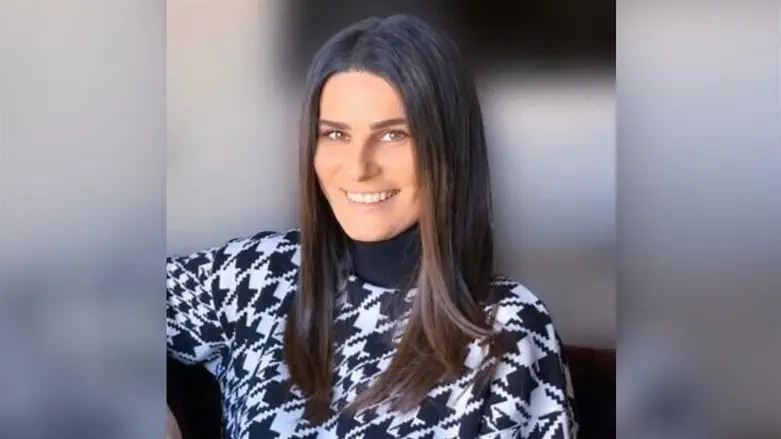
(JNS) On Nov. 8, ignoring the strong objections of Jewish and pro-Israel students, the Undergraduate Student Government (USG) of Case Western Reserve University (CWRU) in Cleveland, Ohio passed a viciously anti-Israel resolution.
In response, CWRU’s President Eric W. Kaler correctly pointed out that “the foundation of this resolution is profoundly anti-Israel and antisemitic. Passing this resolution last night undermines the safety and comfort on our campus of members of our Jewish community. … Undoubtedly, it promotes antisemitism. A vote for this resolution is clearly a vote against Israel and aggression towards the Jewish members of our community.”
It is no coincidence that the resolution was authored by Students for Justice in Palestine (SJP). This group is part of a highly organized “network of hate” financed by organizations like al-Awda, which supports Hamas and Hezbollah.
The vote was conducted by secret ballot and, as CWRU’s Hillel put it, endorsed a resolution that “falsely smears Israel, Israelis and many Jews as anti-peace.” Hillel added that the debate before the vote “like so many before it here and on other campuses—rested on familiar and repeated antisemitic tropes.”
The USG openly ignored the voices of most of the student speakers. Hillel pointed out, “Of the 27 speakers who addressed the USG last night, 17 were proud Jewish students who advocated for their right to express their identities—including their deep connections to and support for Israel—without fear.”
The USG has a history of such behavior, and has failed even to condemn antisemitism on campus in general. This was despite the warning from USG Speaker Ethan Deemer that support for the anti-Israel BDS movement “will do nothing except create a hostile environment for Jewish students on our campus at a time when antisemitism is sharply on the rise in America.”
One Jewish student, who did not wish to be named, told CWRU’s student newspaper The Observer, “There is a direct correlation with antisemitism and a BDS bill or initiative on college campuses.” Separately, a Hillel representative pointed out that “at schools that have passed BDS bills, groups such as Report Campus Hate have discovered increased antisemitism. I have experienced this, having gone to a Jewish school where kids from the public school came and threw things at us—that is a real form of hate.”
Sadly, all of this is true. Scholars from the AMCHA Initiative have observed that “schools that are promoting BDS or other kinds of anti-Zionist rhetoric … are three to eight times more likely to have incidents that target Jewish students for harm.” Such harm includes violent assault, suppression of speech and destruction of property.
The core issue, as Alyza Lewin of the Brandeis Center for Human Rights Under Law has written, is that it is impossible to support Jews but oppose “Zionists,” because “Zionism is an integral part of Jewish identity. … Jews share not only a faith and religious traditions but also a deep sense of Jewish peoplehood. The Jews’ history, ancestry, theology and culture are inextricably intertwined with the Land of Israel.”
Lewin noted that, far from recognizing the nature of Jewish identity and the shocking rise of antisemitism in the United States, “today, on campus and beyond, Jewish students who demonstrate pride in their Jewish ethnic heritage by expressing identification with Israel are shunned, marginalized and excluded. … With frightening frequency, these students are told they are not welcome unless they first condemn Israel. No other group of students is charged such a price for admission.”
Just imagine if black students were asked to condemn Black Lives Matter or LGBTQ+ students were told to support conversion therapy as the price for admission to student spaces. Today, only Jewish students are singled out for this discriminatory treatment.
The CWRU resolution is further evidence that virulent anti-Jewish racism is being re-normalized in American life. This new antisemitism is generally based on non-Jewish people dictating to Jews what their experience and identity should be. It also discounts the long history of discrimination and violence against Jews that culminated in the systematic murder of six million Jews.
Just as anti-black racism is a problem that requires national action to resolve, the problem of anti-Jewish racism cannot be the sole problem of the Jewish community, which only represents about 2% of the U.S. population.
All other Americans of goodwill, and particularly those organizations and individuals who believe in justice and oppose discrimination, must stand against the Jew-hatred that is being perpetuated on campus and, increasingly, other spaces such as high school ethnic studies and city councils. As antisemitic hate speech and hate crimes continue to skyrocket—hitting an all-time high in 2021—American society must confront it. History has proven that, if it does not, the consequences will be catastrophic.
As a former Clevelander and student at CWRU, I’m shocked to see a school once filled with proud Zionist allies be sucked into a vortex of hate masked as pro-Palestinian activism.
Liora Rez is founder and executive director of StopAntisemitism.org, an organization devoted to exposing hatred of Jews through digital platforms.